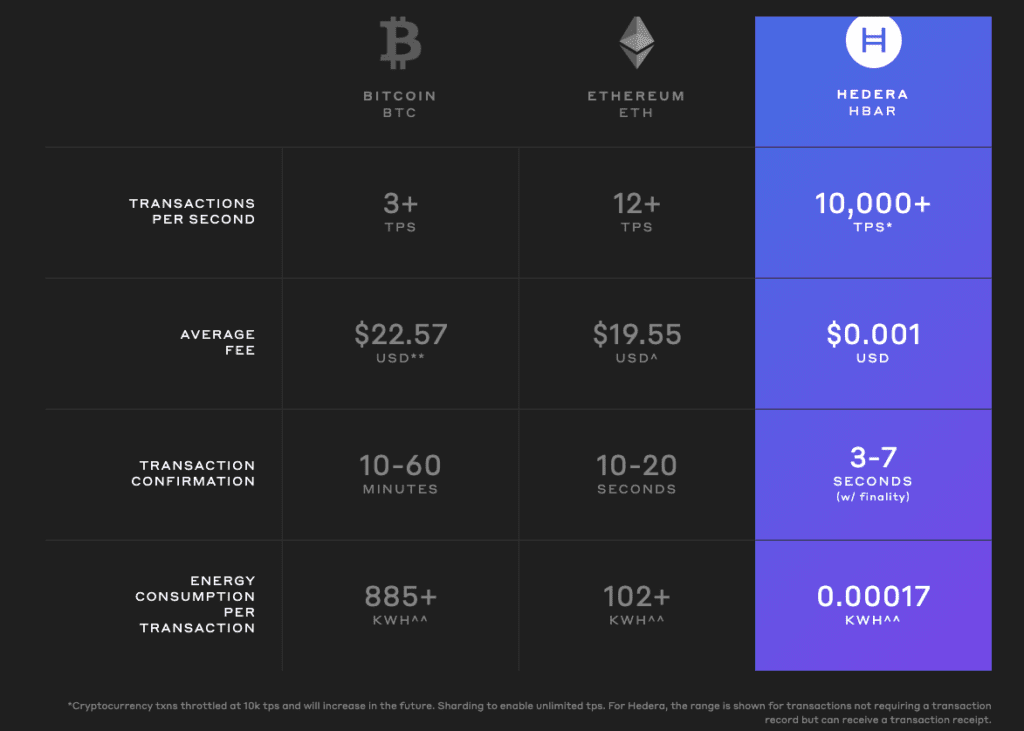Can gaming and DLTs boost user experience in Gaming?
The gaming industry is constantly evolving with distributed ledger technologies (DLTs) like blockchain and hashgraph positioned to revolutionise the gaming experience. These open-source, decentralised technologies give game designers additional tools for creating and running their creations. The gaming business may reap enormous advantages, from improved security and transparency to player ownership. Additionally, these technologies may create new opportunities for users and developers to make money.
What are the benefits and challenges of implementing DLTs into gaming?
The biggest benefit of DLT for gaming is the opportunity for player to embrace true digital ownership of their in-game assets. The ability to their assets exist on chain as part of a decentralised in-game economy can be created using technologies like hedera hashgraph.
DLT, Cryptocurrencies and digital tokens give players the ability to really own and tokenize their in-game goods. Weapons, different kinds of armour, and skins are just a few examples of the items that can be sold with other players at a later time. Players who own digital assets have more control over the game, which promotes player engagement and loyalty. An outstanding instance of this idea is Decentraland.
There are also some other really important benefits of DLTs in gaming like:
Improved Security
Distributed ledger technologies provide a secure way to track and manage any of your transactions. This safeguards data, ensures fair gameplay with other users, and can aid in preventing fraud and cheating. People will be interacting with items that have real-world worth, therefore transparency and security issues are crucial.
Reduction of Costs
DLTs allow for peer-to-peer (P2P) transactions without the need for middlemen such as banks, publishers or 3rd party markets. This can significantly reduce transaction fees and processing times, creating much a better experience for the user. A seamless experience is key, as nobody likes waiting times especially within the game when you are trading assets that have monetary value.
More Efficient Transactions
Transactions that are both rapid and efficient, taking place in real time (with Hashgraph finality ranging from 3 to 7 seconds), can enhance the user experience by minimizing waiting periods and bolstering overall game performance. As previously mentioned, increasing the game’s transaction throughput can enhance player retention as it makes the gameplay more enjoyable.
Enhanced User Experience
New opportunities for gamers to monetise their gameplay, for example through the capture and trade of NFT assets, can create new revenue streams for gamers and also developers. The gaming industry can create decentralized marketplaces for gamers to trade virtual assets, establishing a new economy within the space. Smart contracts enable the creation of intricate and dynamic in-game mechanics, such as automatically triggering NFT rewards based on specific conditions or actions.
Challenges
Implementing DLT in the gaming industry also comes with a set of challenges.
One of the biggest challenges is scalability, as traditional blockchains, like bitcoin and ethereum, can only handle a limited number of transactions per second. The technology to support a popular MMO needs to fully efficient and scalable to handle a large number of transactions and players.
The resolution for that can be implementing a different type of chain. A DLT, like Hedera Hashgraph for example, that can handle tens of thousands of transactions per second. What’s more, Hedera’s consensus mechanism is much secure, decentralised, greener and cheaper if you compare it to Ethereum.
What are the other challenges we can address?
Regulatory and Legal Framework
The gaming industry is subject to a series of complex regulatory and legal frameworks. Regulations around data privacy, digital identity, and money laundering may need to be addressed.
Additionally, the use of DLTs into gaming contexts creates particular regulatory issues. These technologies may be governed by a number of international rules and regulations because they frequently cross national boundaries. DLTs’ decentralised structure makes it challenging to establish jurisdiction, which further muddles the legal system.
Furthermore the DLT-enabled capability of tokenizing in-game assets may cause issues with taxation and property rights. The real-world worth of these assets, and consequently, the tax ramifications of that value, is a complicated problem that authorities are currently trying to solve. Similar to this, it’s not apparent how DLTs transfer player ownership of digital assets into traditional property rights or what legal safeguards are in place.
Finally, using DLTs may make problems with age constraints and parental approval worse. In order to protect players under the age of 18, further protections might be required given that these technologies potentially permit real-world transactions within games.
Although DLTs have many advantages for the gaming sector, it is important to properly manage these legal and regulatory obstacles. As a result, it’s critical for game makers to keep up with changes to the law in this area and to consult with legal professionals frequently when incorporating DLT
Interoperability between DLT platforms
Different blockchain platforms may have varying standards and protocols that make it difficult to communicate with one another. This can pose challenges for the adoption and scalability of blockchain-based gaming. That would mean user can utilise NFTs or tokens only within the ecosystem that game is created, which is not perfect solution… It can kill a growth and user experience as he or she can only utilise asset in one certain ecosystem user will choose.
User Adoption and Education
To encourage greater adoption of DLT gaming, education and awareness campaigns can help by informing gamers about the benefits of blockchain technology. Without such campaigns, some gamers may choose not to try DLT games due to perceived risks or uncertainty they may have heard from various sources.
Integration with Existing Infrastructure
Many existing gaming platforms may not be compatible with blockchain technology. This presents significant obstacles to incorporating DLT-based games into existing systems. Essentially, the prerequisite is to guarantee seamless interoperability between these innovative systems and pre-existing databases or applications. Such a task necessitates meticulous planning and coordination, as the development and integration of this technology into a game call for profound knowledge and technical expertise. Insufficient access to the right talent and expertise during the industry’s early stages could decelerate the project’s progression.
In conclusion, the potential to revolutionize the gaming industry with DLTs is huge, but it also presents some challenges. While is it clear that game developers, players, and the entire gaming industry stand to benefit from some facets of distributed ledger technology there are still significant hurdles to overcome before we see mainstream adoption. This adoption will require a collective effort from every part of the gaming industry in order to fully capitalise on the potential of DLT in gaming. The future of gaming is exciting and DLTs will be a big part of it. In the future, we will likely see more games based on that technology, which will change the way we play forever.
If you would like to be a part of Yamgo’s upcoming gaming “Yammieverse” then check-out our new project, Yammies. It’s an NFT-based idle strategy game where players battle, collect resources, manage their economy and grow their squad in order to earn rewards and climb the leaderboards.
If you would like to find out more check out our Whitepaper!


